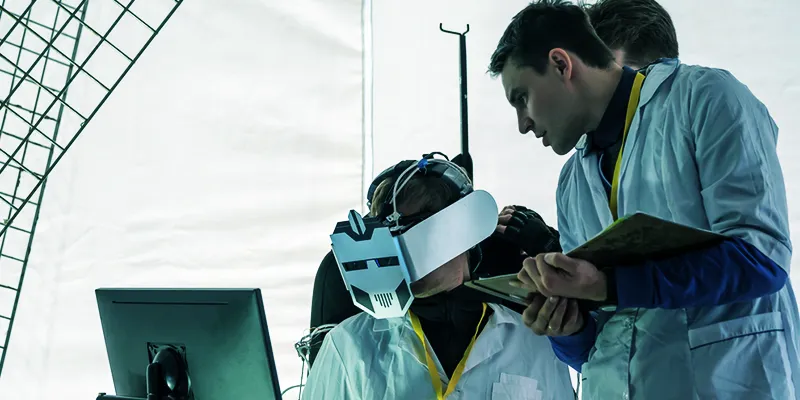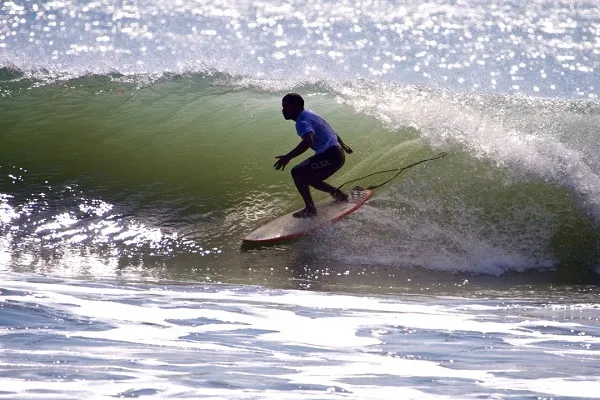Home automation company founder reveals the 5 important lessons a bad year taught him
Demonetisation and rollout of GST rollout may have had a negative impact on business, but they brought along important lessons in their wake.

It is strange that 2017 was one of the worst years for many people around me. I can understand that it was bad for many businesses due to the impact of demonetisation and rollout of GST rollout. However, it was also bad on the personal front for many.
The only explanation seems to be that since it was one of the worst years for me professionally, I ended up noticing many people around me in similar situations.
I and my colleagues worked really hard and I was under immense stress most of the year. However, looking back, I realise that it has been a year of immense learning. The lessons have made me a better businessman and perhaps also a better person. I could spend very limited time with my wife and child, but I think it made me a better husband and father. Strange, isn’t it?
Here is what I learned this year:
Discovering a new market is not a startup’s task
I learned the hard way that discovering a market takes time and money. No matter how good your product is, it takes time to change usage habit and, more importantly, purchase habit.
The market as a concept became clearer to me and I realised that I didn’t understand it all that well. Toothpaste was not a market sometime back but then humans developed this habit of brushing their teeth every morning and, voilà, a new market was created.
Ceiling fans are a big market in India, but they’re not a big market in Texas. It’s not that Texas is not hot and they don’t need ceiling fans; however, most Texans don’t have the habit of using and buying ceiling fans.
I read a few books like Crossing the Chasm, Four Steps to the Epiphany, The Power of Habit, Influence and Tipping Point. These books and marketing experiments helped me understand the concept of market.
Now I feel that there is always a way to modify any new technology product so that it competes in an existing market. There are many tasks that startups can do better than anyone else. However, discovering a new market is not one of them. It is a task better done by large established companies with healthy balance sheets.
Changing things and moving fast is a luxury

Yes, mistakes happen. When we realise it’s a mistake, it’s possible to turn around and move forward quickly. However, that usually involves spending more money or losing short-term revenue.
In early stages, one thing that is more important than moving fast is ensuring that you survive. The odds are stacked against your survival. So breaking things and moving fast is good, but first you have to get in a situation to deserve this luxury. Move slow or move fast, but it’s most important is to keep moving. Building a company is like building a good ODI inning; avoid losing wickets in the beginning so that you can go for a blitzkrieg in the slog overs.
There’s a difference between sales and marketing
Getting a lead in your sales funnel is marketing and converting that lead to customer is sales. Usually sales involves a person to follow up on the lead. Digital commerce has made it a complicated concept, since a website does the job of a salesman.
It is surprising that no one explains this difference clearly; it took me time to come to this simple realisation. Once I understood this difference, all the blogs and books on the topic started making sense. Sales is obviously more important in the early stages of a startup. However, a scalable model for marketing also needs to be developed. It was tough for me in the beginning since the boundary between the two was fuzzy.
In the end, everybody wants a hit movie
Anurag Kashyap can create an artistic movie with a low budget. Karan Johar can create a high budget movie with little content. I’ve realized that this really doesn’t matter; they will win only when they create a movie with blockbuster box-office collections.

Being good with money and having sound financial prudence will not guarantee success. However, if you are not Yash Johar’s son, it will increase your chances of making your own Gangs of Wasseypur.
Customer centric is only way to build a startup
Support from friends, family, investors and colleagues helped me immensely in getting over this tough year. It was a year of reckoning. We also got cosmic support with Amazon launching Echo in the Indian market.
However, the most important was the continued support from our customers. Like a gurukul teacher, a customer minutely monitors all your moves, scolds you whenever you make a mistake, and may give you an appreciative pat when you do something good.
Our customers kept supporting us by giving words of appreciation and telling us how important our product is becoming in their life. They also shouted the loudest whenever we faltered, whether it was due to technical glitch delivery delay, or any other such things. We keep getting suggestions on what they want us to do, sometime politely, sometime aggressively but always lovingly. They told us how proud they are us to slog and make our products in India. They kept us busy and moving in the right direction.
It’s not about riding a wave

There is this famous and wonderful blog by Marc Andreessen in which he explains that a good market is the only thing that ensures the success of a startup, nothing else matters.
I interpreted it to mean that a giant wave will come and whoever is there, in the right place, at the right time, will be able to ride it. When I was teaching my son surfing last week, I realised that my interpretation was not accurate. There is not just one big wave; in the ocean, waves keep coming and a good entrepreneur is like a pro-surfer who can comfortably ride these waves.
There was not just one big e-commerce wave, which Amazon rode. There was first a wave of selling books online. Even before that there was a wave of selling esoteric books. Before that, Jeff Bezos as an investor spent many years simply watching the waves and betting on other surfers to ride them.
Now, of course, they can not only ride the biggest waves, they also know which are the best surfing beaches across the world at what time of year. They can even discover new unexplored beaches.
In fact, we are currently surfing on a voice assistant beach discovered by Amazon. As the weather warms up and wind picks up, this beach is becoming better to surf with larger waves.
We are mastering our skill of watching the horizon to predict the wave coming at right height, quickly board the surf, maintain the balance, paddle hard, do cobra, stand on board to ride the wave, and then quickly paddle back to catch the next wave.
Nothing to worry if a large wave is missed, remember the ocean never sleeps. The sun, the beach, the sand, the salty water, the physical exhaustion, the mental challenge, the exhilaration…is there somewhere else you rather be?
(Disclaimer: The views and opinions expressed in this article are those of the author and do not necessarily reflect the views of YourStory.)







